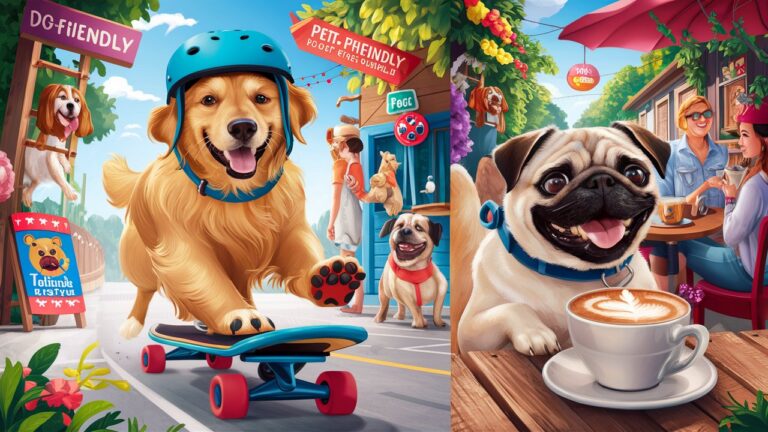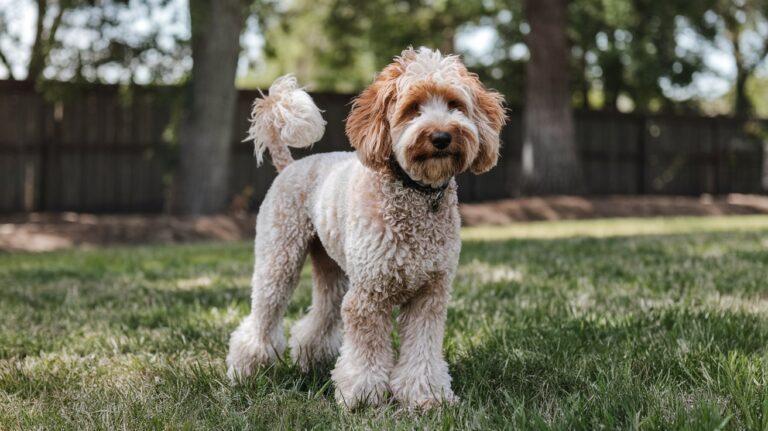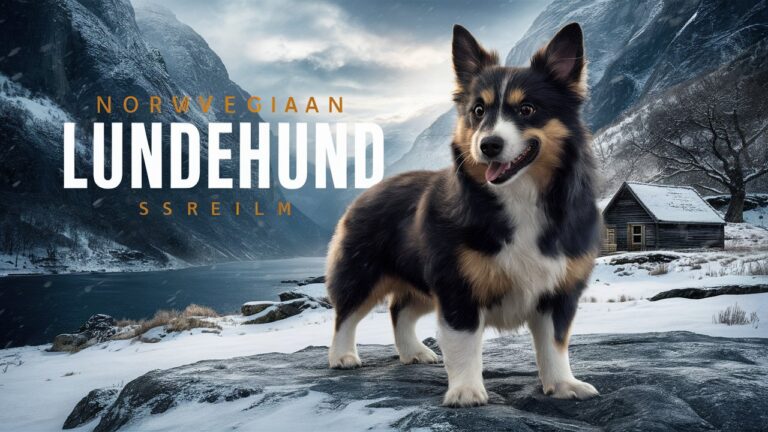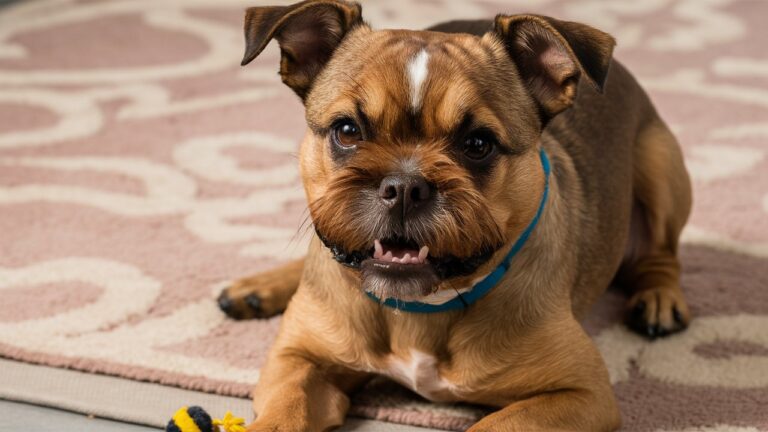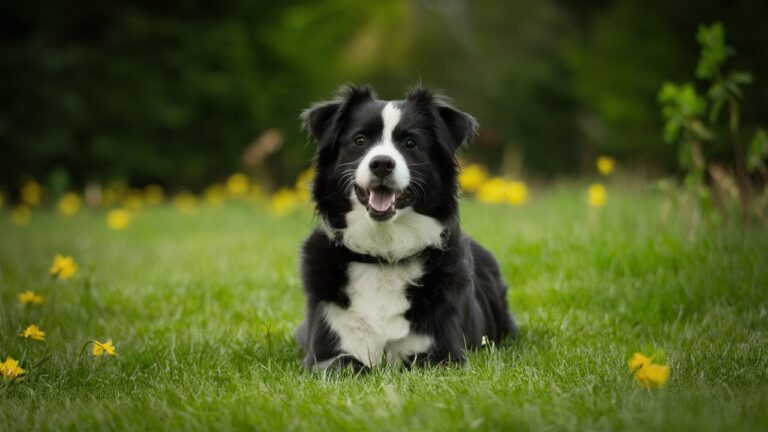7 Large Dog Breeds for Families: Finding the Perfect Gentle Giant
When it comes to choosing a dog for your family, size can often play a crucial role in the decision-making process. Large dog breeds can be an excellent addition to families, offering not only companionship but also protection and a sense of security. However, not all big dogs are suitable for every family, as they vary significantly in temperament, exercise needs, and care requirements. This article will explore some of the best large dog breeds for families, highlighting their unique characteristics and sharing anecdotes to help you decide which gentle giant might be the perfect fit for your household.
Why Choose a Large Dog Breed?
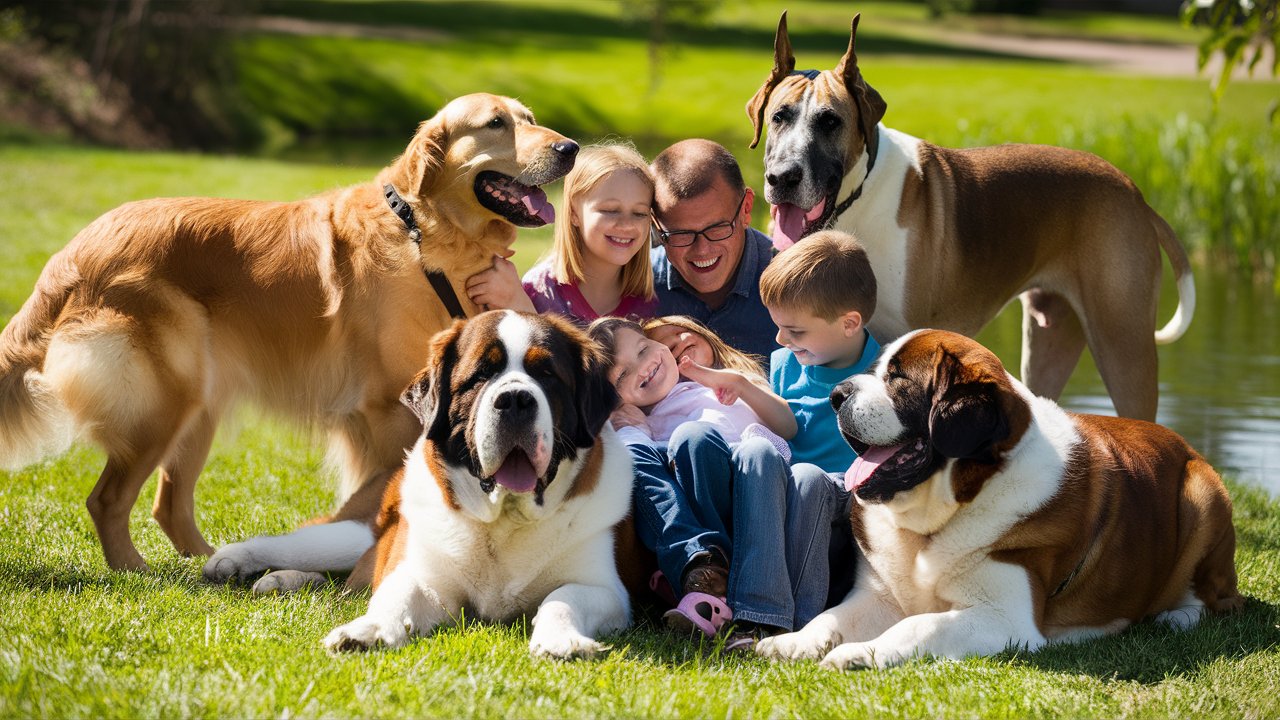
Large dog breeds are often favored by families for their loving nature and protective instincts. These dogs can be excellent companions for children, providing them with a sense of security and often forming deep bonds with all family members. Additionally, many large breeds are known for their intelligence and trainability, making them ideal for families who are willing to invest time in training and socialization.
Considerations for Families
Before bringing a large dog into your home, it’s important to consider several factors:
- Space: Large dogs need ample space to move around comfortably. A house with a yard is ideal, although many large breeds can adapt to apartment living with sufficient exercise.
- Exercise Needs: Most large dogs require regular exercise to maintain their physical and mental health. Be prepared for daily walks, playtime, and occasional adventures.
- Cost: Bigger dogs generally mean bigger expenses, from food to veterinary care. It’s essential to factor in the cost of owning a large breed.
- Training and Socialization: Early training and socialization are crucial for large breeds to ensure they grow into well-behaved and friendly adults.
Best Large Dog Breeds for Families
1. Labrador Retriever
Overview: Labradors are one of the most popular dog breeds globally, and for good reason. They are friendly, outgoing, and high-spirited companions who love to be part of the family.
Personality: Known for their patience and gentle nature, Labradors are excellent with children and can easily adapt to various family activities.
Exercise Needs: Labradors are active dogs that require regular exercise, including walks, playtime, and mental stimulation.
Anecdote: A friend of mine, Sarah, has a Labrador named Max. She often shares stories of how Max patiently lets her toddler dress him up in various costumes, showcasing the breed’s tolerant and easygoing nature. Max is not only a playmate but also a source of comfort for her child during thunderstorms, often curling up beside her to offer a sense of security.
2. Golden Retriever
Overview: Golden Retrievers are renowned for their friendly and tolerant attitudes. They are intelligent and eager to please, making them highly trainable.
Personality: Goldens are affectionate and good with children. Their playful nature makes them great companions for family fun.
Exercise Needs: Regular exercise is essential to keep a Golden Retriever healthy and happy. They enjoy walks, runs, and games of fetch.
Anecdote: My cousin, Mark, has a Golden Retriever named Daisy. Daisy loves joining their family hikes, always leading the way with her tail wagging enthusiastically. Mark appreciates Daisy’s patience with his younger kids, who often use her as a pillow during their breaks.
3. Bernese Mountain Dog
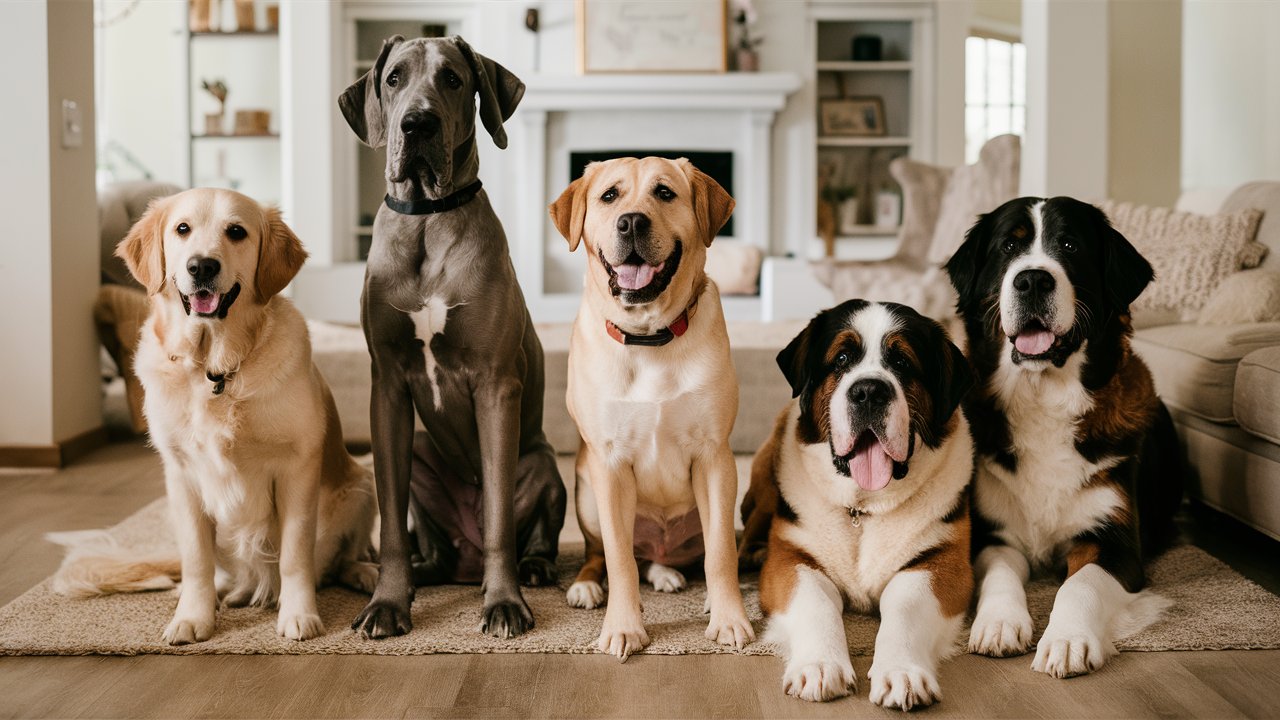
Overview: Bernese Mountain Dogs are large, sturdy dogs with a calm and friendly demeanor. They are known for their striking tri-colored coats and gentle temperament.
Personality: They are affectionate and loyal, often forming strong bonds with family members. Berners are good with children and usually get along well with other pets.
Exercise Needs: While they enjoy outdoor activities, Bernese Mountain Dogs are not as high-energy as some other breeds. Regular walks and playtime are sufficient to keep them content.
Anecdote: My neighbors have a Bernese Mountain Dog named Toby. Toby is the gentle giant of the neighborhood, known for his friendly greetings and gentle nudges. During winter, he loves pulling the kids on sleds, showcasing his strength and eagerness to join in family activities.
4. German Shepherd
Overview: German Shepherds are intelligent and versatile dogs known for their courage and loyalty. They are often used as working dogs due to their trainability and protective instincts.
Personality: German Shepherds are protective of their families and can be particularly good with children when properly trained and socialized.
Exercise Needs: These dogs are active and require regular exercise to stay healthy and happy. Mental stimulation is equally important to prevent boredom.
Anecdote: A former colleague, Lisa, has a German Shepherd named Rex. She often shares how Rex is not only a loyal companion but also a vigilant protector. On one occasion, Rex alerted the family to a small fire in the garage, highlighting the breed’s instinctive protective nature.
5. Newfoundland
Overview: Newfoundlands are gentle giants known for their sweet and patient nature. They are great swimmers and have been known to rescue people from water.
Personality: Newfoundlands are incredibly gentle with children, earning them the nickname “nanny dogs.” They are affectionate and devoted to their families.
Exercise Needs: Regular exercise is necessary, but Newfoundlands are not as high-energy as some other large breeds. They enjoy walks and swimming.
Anecdote: My friend, Emily, has a Newfoundland named Bella. Bella is a beloved member of their family, known for her patience with Emily’s energetic twin boys. During their beach trips, Bella loves swimming alongside the kids, ensuring they are safe in the water.
6. Irish Setter
Overview: Irish Setters are known for their stunning red coats and playful personalities. They are energetic dogs that thrive in active families.
Personality: These dogs are friendly and outgoing, making them excellent companions for children. They are eager to please and enjoy being part of family activities.
Exercise Needs: Irish Setters require regular exercise to burn off their energy. They enjoy running, playing, and exploring.
Anecdote: My uncle, Jim, has an Irish Setter named Red. Red is always up for a game of fetch or a run in the park. His playful nature and friendly demeanor make him a hit with Jim’s grandchildren, who love visiting and spending time with their furry friend.
7. Great Dane
Overview: Great Danes are one of the largest dog breeds, known for their gentle and friendly nature. Despite their size, they are often referred to as “gentle giants.”
Personality: Great Danes are good-natured and affectionate, making them excellent companions for families. They are usually good with children and can adapt well to various living situations.
Exercise Needs: While they enjoy daily walks, Great Danes are not as high-energy as some other large breeds. They appreciate lounging around the house and spending time with their families.
Anecdote: A former coworker, Jane, has a Great Dane named Duke. Duke is known for his calm demeanor and gentle interactions with Jane’s two young kids. Despite his size, Duke often forgets he’s a large dog and tries to curl up on the couch with the family during movie nights.

Conclusion
Choosing a large dog breed for your family can be a rewarding decision, offering companionship, loyalty, and protection. Each breed has its unique traits and characteristics, making it essential to consider your family’s lifestyle, space, and ability to meet the dog’s needs. Whether you’re drawn to the playful nature of a Labrador Retriever or the gentle demeanor of a Bernese Mountain Dog, large breeds have much to offer families willing to open their homes and hearts to these gentle giants. By understanding each breed’s needs and personality, you can find the perfect large dog to become a cherished member of your family.
